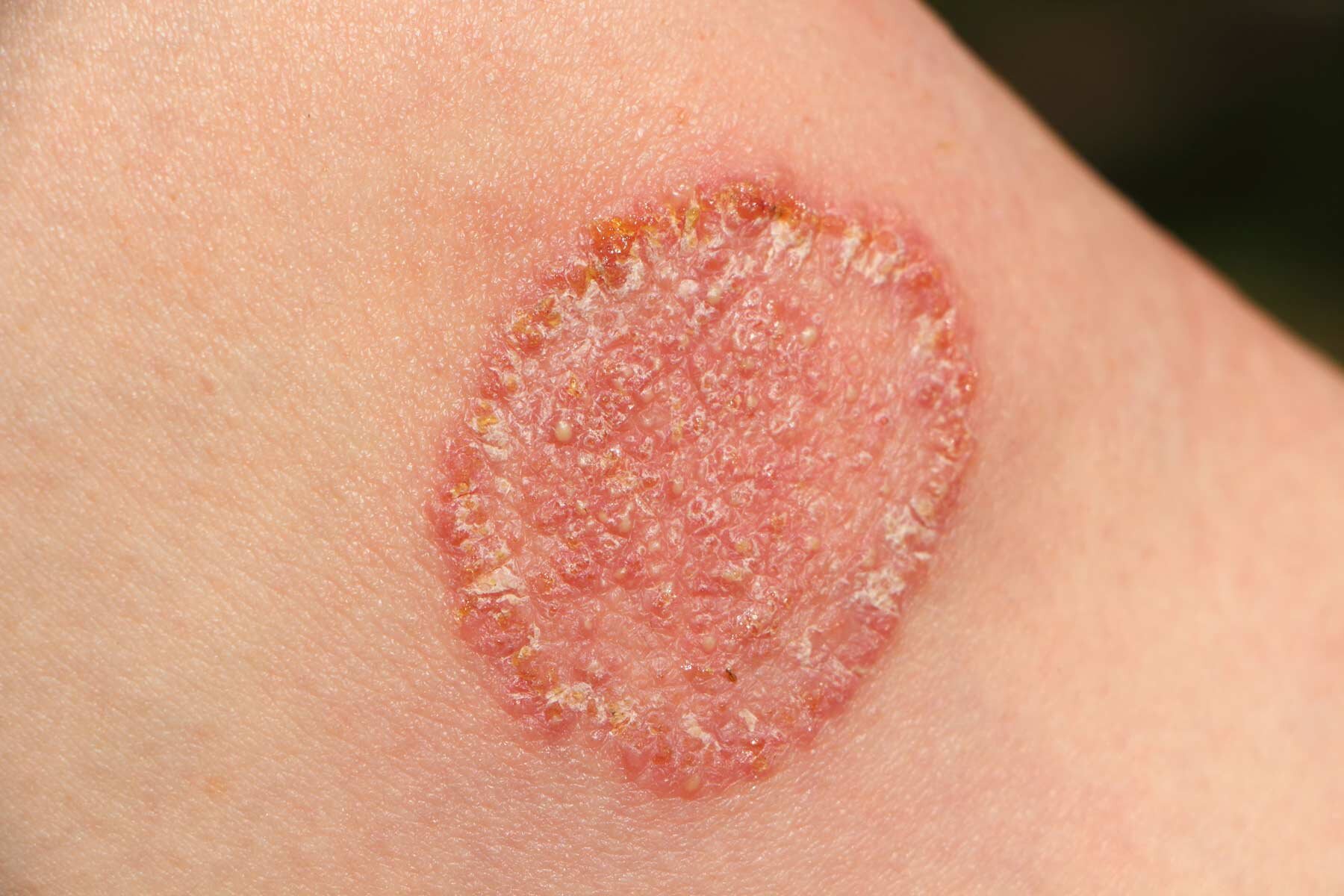Since 1928VHCA Hair Clinic World's 1st Ayurveda Hair Clinic
Fungal Infection
Fungal infections are common skin conditions caused by various types of fungi, such as dermatophytes, yeasts, and molds. These infections can affect different parts of the body, including the skin, nails, and scalp. Fungal infections thrive in warm, moist environments and can be contagious, spreading through direct contact or by sharing personal items like towels, combs, or shoes.

Common types of fungal infections include:
Tinea Infections (Ringworm):
Tinea Corporis: Affects the body and presents as a ring-shaped, red, scaly rash.
Tinea Pedis (Athlete's Foot): Affects the feet, causing itching, scaling, and blisters.
Tinea Cruris (Jock Itch): Affects the groin area, leading to red, itchy patches.
Tinea Capitis: Affects the scalp, leading to hair loss, scaling, and itchiness.
Candidiasis (Yeast Infection):
Oral Thrush: Affects the mouth, causing white patches on the tongue and inner cheeks.
Vaginal Yeast Infection: Affects the genital area, causing itching, discharge, and discomfort.
Intertrigo: Affects skin folds, such as under the breasts or between the thighs, leading to redness and irritation.
Onychomycosis (Nail Fungal Infection): Affects the nails, causing them to become thick, discolored, and brittle.
Causes of Fungal Infections
Warm and Moist Environments: Fungi thrive in environments that are warm and moist, such as sweaty shoes, damp clothes, or humid climates. Prolonged exposure to such conditions increases the risk of infection.
Poor Hygiene: Inadequate hygiene practices, such as infrequent washing or sharing personal items, can facilitate the spread of fungal infections.
Weakened Immune System: Individuals with a weakened immune system, due to conditions like diabetes, HIV, or certain medications, are more susceptible to fungal infections.
Close Contact: Fungal infections can spread through direct contact with an infected person, animal, or contaminated object.
Skin Injuries: Minor cuts, abrasions, or breaks in the skin can create entry points for fungi to invade and cause infection.
Use of Antibiotics: Prolonged use of antibiotics can disrupt the balance of natural flora on the skin and mucous membranes, leading to overgrowth of fungi.

Symptoms of Fungal Infections
Fungal infection symptoms can vary depending on the type and location of the infection but generally include:
Itching and Irritation: Most fungal infections cause intense itching and irritation in the affected area.
Redness and Inflammation: Infected areas often become red, inflamed, and may have a raised border, especially in the case of ringworm.
Scaling and Flaking: The skin may become dry, scaly, and flaky, particularly in tinea infections.
Blisters or Pustules: Some fungal infections, like athlete’s foot, can cause blisters or pustules filled with fluid.
Discoloration of Nails: Nail fungal infections can cause nails to become yellow, brown, or white, and they may thicken or crumble.
Hair Loss: Fungal infections of the scalp can lead to patches of hair loss, along with scaling and redness.
Ayurvedic Perspective on Fungal Infections
In Ayurveda, fungal infections are often attributed to an imbalance in the Kapha and Pitta doshas, leading to the accumulation of toxins (Ama) in the body. These toxins can manifest as skin disorders when the body's natural defenses are weakened. Ayurvedic treatment focuses on balancing the doshas, detoxifying the body, and strengthening the immune system to prevent and treat fungal infections.
Ayurvedic Treatment for Fungal Infections
Herbal Remedies:
Neem (Azadirachta indica): Neem is a potent antifungal and antibacterial herb that helps cleanse the skin and reduce fungal growth.
Turmeric (Curcuma longa): Turmeric has powerful anti-inflammatory and antimicrobial properties, making it effective in treating fungal infections.
Aloe Vera: Aloe Vera provides soothing relief from itching and irritation while promoting healing of the skin.
Dietary Adjustments:
Light and Digestible Foods: Consuming light, easily digestible foods helps reduce the accumulation of toxins and supports overall health.
Avoiding Sugary Foods: Sugar promotes the growth of yeast and fungi, so it's advisable to reduce or eliminate sugary foods from the diet.
Cooling Foods: Incorporating cooling foods such as cucumbers, leafy greens, and fresh fruits can help pacify Pitta and reduce inflammation.
Lifestyle Modifications:
Maintain Hygiene: Regular bathing, changing clothes frequently, and keeping the skin dry are essential to preventing fungal infections.
Wear Breathable Clothing: Loose-fitting, breathable clothing made from natural fibers like cotton helps prevent moisture buildup.
Stress Management: Stress can weaken the immune system, so practicing stress-reducing techniques such as yoga, meditation, and deep breathing is beneficial.
External Treatments:
Herbal Creams: Applying herbal creams made from neem, turmeric, or sandalwood to the affected areas can help reduce fungal growth and soothe the skin.
Medicated Oils: Ayurvedic oils like coconut oil or sesame oil infused with antifungal herbs can be applied to the skin to protect and heal.
Why Choose VHCA Ayurveda Hair Clinic for Fungal Infection Treatment?
At VHCA Ayurveda Hair Clinic, we offer a holistic approach to treating fungal infections that focuses on addressing the root cause of the condition. Our experienced practitioners provide personalized treatment plans that include herbal remedies, dietary advice, lifestyle modifications, and external treatments tailored to your specific needs.
We are committed to providing natural, effective, and safe solutions for managing fungal infections. By balancing the doshas, detoxifying the body, and supporting the immune system, VHCA Ayurveda Hair Clinic helps you achieve healthy, clear skin and improve your overall well-being.
Connect for wellness: Begin Your Journey Today
